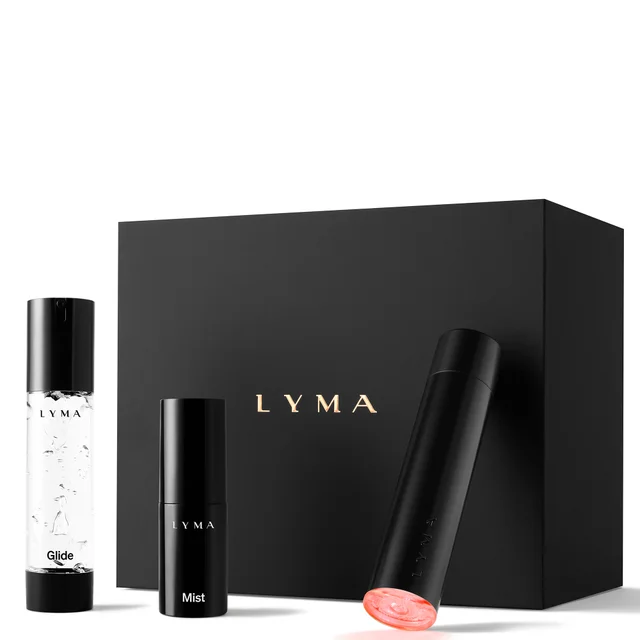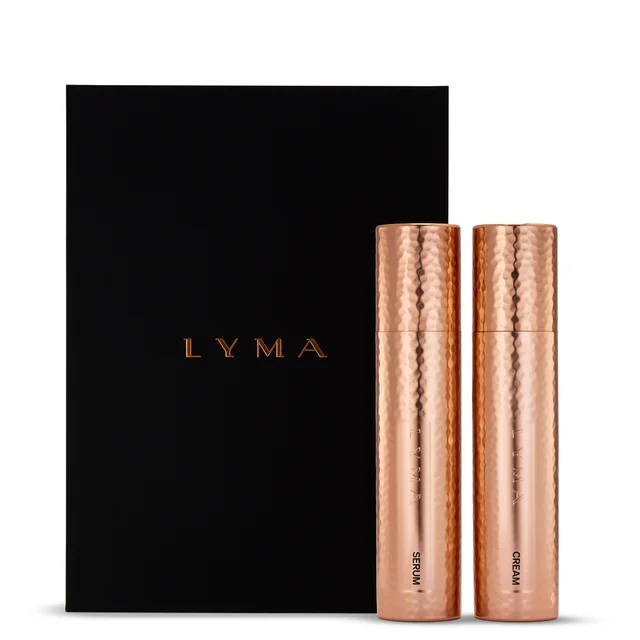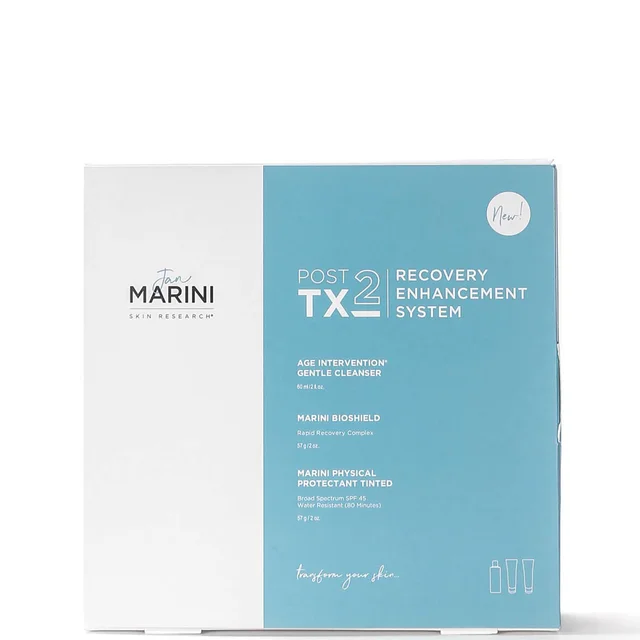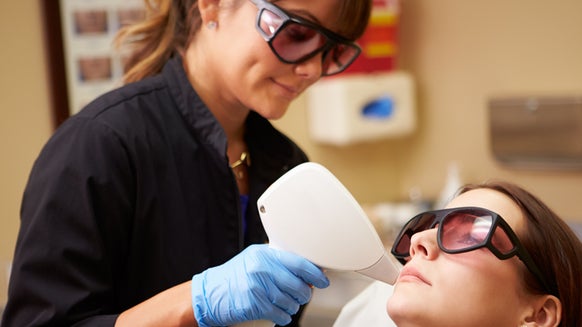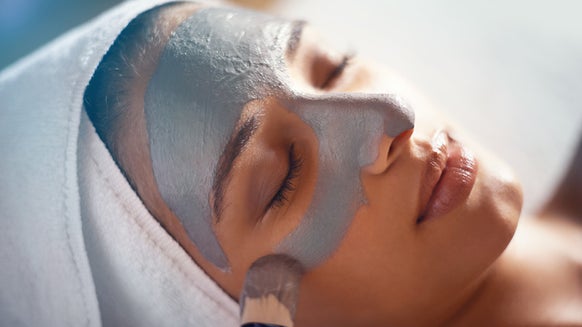The Ultimate Guide to Using At-Home Lasers for the Best Skin of Your Life
Laser resurfacing treatments have been a long-time staple at the dermatologist's office for rejuvenating the skin. Over the last few years, there's been more of a DIY approach to lasers. With innovation at an all-time high, the at-home laser industry has evolved tenfold, and now, some of these more compact—and generally more affordable—beauty devices are as good as what the doctor offers. Whether you use an at-home laser to maintain professional results or prefer to treat your skin yourself, it's important to know that for all the good these handheld tools offer, the FDA still does not vet or approve these devices for aesthetic results, so navigating your options can be a bit tricky. To make sifting through the world of at-home lasers a bit easier, we've put together this guide so you can make the right choice for your skin and skin care goals.
How At-Home Lasers Work
At-home lasers are wand-like devices and tools designed specifically for home use. While laser treatments at your dermatologist's office are the most powerful and potent option available because they are performed by a trained professional, at-home lasers rely on any one type of laser technology, including LED light, radiofrequency energy, and non-fractional technologies.
Professional lasers often rely on fractional laser technology, which safely targets the lower layers of the skin while leaving the remaining areas intact to stimulate collagen and elastin production as a response. With increased elasticity and new, better-organized collagen, the skin will appear firmer and smoother with fewer wrinkles and lines and with reduced hyperpigmentation.
At-home lasers that rely upon fractional technology work similarly to those used in office but are significantly scaled back in intensity. Regularly using an at-home laser will make the skin appear smoother with an improved tone and tightness. Since at-home lasers don't affect the top layer of the skin, there's little to no downtime with them, and they minimize the risk of infection and swelling. To make the most of an at-home laser, use it alongside antioxidant gels, creams, or serums to help encourage collagen production after resurfacing.
At-Home Lasers for Body Hair Removal
Not all at-home lasers are used exclusively to breathe new life into the skin. One of the most popular types is for removing unwanted hair from the face and body. These lasers rely on heat to target pigment within the hair's follicle. After multiple treatments in a row, the heat permanently damages the follicles and stunts hair growth. Alternatively, intense pulsed light (IPL) treatments are used both in-office and at home to eliminate unwanted hair by disrupting the normal hair growth cycle at the root.
Many of these at-home laser devices cater to people with light-to-medium skin tones with dark hair. A 2010 study from the Journal of Clinical and Aesthetic Dermatology reports overall hair reduction of about 78 percent over the course of 16 weeks, with one IPL treatment every other week. Both at-home laser and in-office laser devices work best for smaller areas—such as the bikini line or underarms—making them a convenient and effective solution for effective hair removal.
Lasers vs. LED
In the world of lasers, multiple technologies can be used to improve the skin. One popular one found in many at-home devices is light-emitting diodes (LED), which deliver an intense dose of red and blue infrared lights onto the skin. Red LED therapy aims to boost collagen production and improve skin tone and texture, making it a go-to for those who want an anti-aging benefit while also reducing unwanted pigment and smoother-looking skin. Also called photodynamic therapy and offered at dermatologist's offices, red LED devices are often used in conjunction with topical ingredients to treat acne or pre-cancerous skin lesions. Another LED option is blue light, which is ideal for those struggling with breakouts. Blue LED works by targeting acne-causing bacteria.
While at-home devices aren't as strong as those used by professionals, it's essential to follow safety instructions, not overtreat the skin, and always wear protective eyewear when applying treatments.
At-Home Laser Tips
While at-home lasers can improve the current state of your skin, it's essential to know that they do not require FDA approval, so it's super important to always seek machines that have been peer-reviewed by medical experts. Whichever device you choose, make sure to follow the manufacturer's instructions and warnings and stick to the recommended routine; even the most effective treatment will only result in maximum results without proper, regular use. Everyone's skin is unique, so always test your new at-home laser on a small patch of skin on the inner arm before using it on the desired treatment area.
Shop At-Home Laser Products at Dermstore
LYMA Laser Starter Kit Bundle
Not too keen on your wrinkles but aren't ready for a more invasive laser at your dermatologist's office? Then, this clinical-grade painless one may be just what you need. Perfect for targeting wrinkles, fine lines, and folds on the face, neck, and chest, this doctor-engineered and approved at-home laser, which relies on cold, near-infrared laser light, goes hard to work in just a few minutes per day for smoother, firmer healthier skin, no downtime required.
LYMA Skincare Serum and Cream Starter Kit
Make the most of your LYMA at-home laser by pairing it with the brand's supercharged Serum and Cream with refillable hammered copper vessels to increase moisture and create natural skin vibrance with fewer visible-looking pores in about one month. Together, this combination approach addresses all the mechanisms of skin aging to increase skin renewal, circulation, and improved barrier strength while slowing the epigenetic clock.
Shop Post Recovery Products After Using a Laser
iS Clinical SHEALD Recovery Balm
The products you use on your skin following an at-home laser are just as important as the laser itself. Treat the skin to this repairing and protective cream, which nourishes and restores it post-treatment so it isn't left compromised or dry. A blend of antioxidants and active ingredients hydrates and nourishes the skin to help reduce any discomfort and irritation that may linger.
Jan Marini Post TX 2 Recovery Enhancement System
No matter what type of in-office or at-home laser you treat your skin to, this post-laser recovery kit is an absolute must. Use it to nurse the skin back to health after any aesthetic treatment so that the skin heals faster and better for improved results.

Elise Minton Tabin is an award-winning beauty journalist, editor, and beauty expert with more than 16 years of experience. She previously held the title of Executive Beauty Editor at NewBeauty magazine, where she reported on beauty, plastic surgery, anti-aging, health and wellness. She was also instrumental in the launch of the beauty supplement brand Hush & Hush. A self-professed beauty junkie and retinol and sunscreen pusher, Elise knows what’s new, what works and who’s the best to go for every procedure under the sun. Follow Elise on Facebook, Instagram, and on her beauty blog, elisetabin.com
